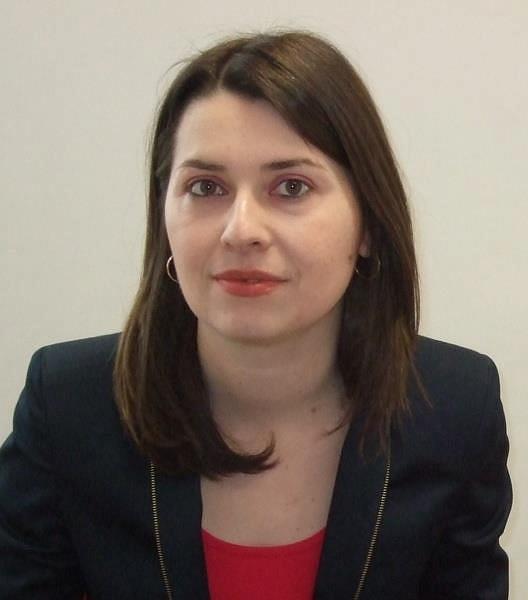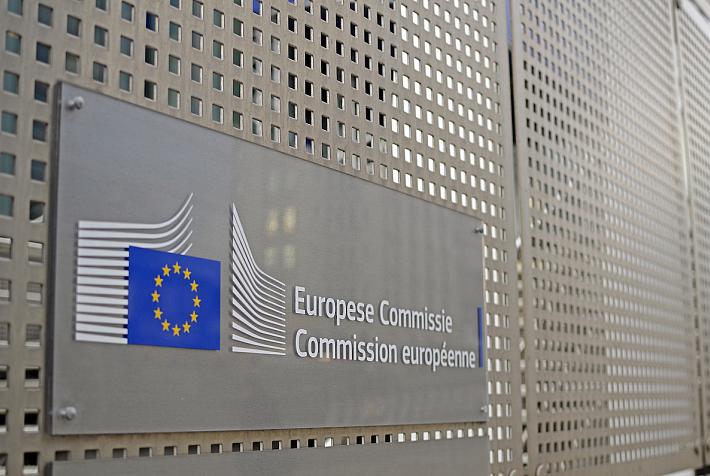Expanding Horizons: Discovering Romanian with ROLANG School Founder

Dr. Mona Moldoveanu Pologea, a teacher with nearly two decades of experience teaching Romanian to non-native speakers and founder of ROLANG School, shares in this interview why expats living in the country should try to learn Romanian and how they should approach the learning process.
Although many people in Romania speak English, making it easy for expats to communicate, speaking the Romanian language helps non-natives integrate better and foster stronger relationships with coworkers and customers, giving them a competitive edge and new career opportunities, says Dr. Mona Moldoveanu Pologea.
She founded ROLANG School in 2009 to teach Romanian to international students interested in Romania. The school now provides a variety of language programs, including general and intensive courses, conversation classes, cultural activities, summer schools, exam preparation, and Romanian for Business and Citizenship. Courses take place both in-person and online and gather around 1,000 international students every year.
To make the learning process more efficient, Dr. Pologea advises her students to immerse themselves as much as they can in the language by consuming local media, books, movies, TV shows and podcasts and also speak Romanian as much as they can, preferably with native speakers who can also give feedback. However, she also recommends setting reasonable goals and expectations and patience, as learning a foreign language is not always a straight-line growth.
Meanwhile, for her as a teacher, the biggest joy is to see her students becoming fluent in Romanian and even making a future for themselves in the country.
“We are incredibly pleased with our students' dedication and accomplishments. Numerous people have not only become fluent in Romanian but also graduated from prestigious Romanian universities. While some have pursued successful careers as expert translators, some have fallen in love and married. Additionally, we have students who have earned their doctoral degrees in Romanian with a concentration on our vibrant culture and civilization. Some acquired Romanian citizenship. These success stories exemplify the transformational potential of language study as well as the deep bond our students build with Romanian culture,” Dr. Mona Moldoveanu Pologea says.
Read more in the interview below:
Romania is an expat-friendly country, given that most Romanians understand and speak English. Why is it important for expat managers and employees to get Romanian language training?
Mona Moldoveanu Pologea: Expat managers and personnel that operate in Romania should take Romanian language training for a variety of reasons, despite the fact that many Romanians do speak English well.
First, learning the language of the country in which they currently reside helps with cultural integration and fosters stronger relationships with coworkers, customers, and the local community. It demonstrates a true desire to participate on a deeper level as well as respect for the host country's culture.
Second, being able to communicate successfully in daily life and move through administrative procedures is possible with a functional comprehension of Romanian.
Thirdly, the ability to communicate clearly in a second language will provide expats with a competitive edge, improving their job flexibility and presenting them with new career opportunities.
What advice do you have for expats who are trying to learn Romanian?
Mona Moldoveanu Pologea: I have some recommendations for foreign nationals who want to learn a little bit of the language:
- Immerse yourself as much as you can, surround yourself with the language. Try to consume media in Romanian, whether it is reading books or articles, watching movies or TV shows, or listening to podcasts. If you do this, learning the sounds and flow of the language will be easier for you.
- Participate in formal education. Enroll in in-person or online language classes. You will build a strong foundation and accelerate your learning by enrolling in structured courses offered by experienced instructors.
- Speak Romanian as much as you can. Don't let the fear of making mistakes deter you from speaking. Communicate with those who are also learning the language, whether they are your peers or fellow students. Consistent verbal interaction remains the key to enhancing your fluency. However, it's essential to acknowledge that conversing solely with fellow learners, who may not be native speakers of Romanian, might lead to uncorrected errors and a lack of comprehensive feedback. This is in contrast to the insightful input you can gain from a native speaker who is willing to assist you in rectifying your mistakes.
- Create reasonable goals for your language learning journey by setting realistic expectations. Having clear objectives will keep you motivated, whether your goal is to acquire a certain number of words or to engage in basic conversation.
- Be patient. Language acquisition is a process that takes time, and growth is not always straight-line. Celebrate every success, no matter how small it is.
What are the benefits for expats who turn to a certified language school rather than try to learn Romanian on their own?
Mona Moldoveanu Pologea: Choosing a recognized language school over self-study has a number of advantages for foreigners looking to learn Romanian:
- Structured curriculum: Accredited language schools offer a curriculum that is well-organized and covers all facets of the language, including grammar, vocabulary, reading, writing, speaking, and listening. This guarantees a thorough and balanced educational experience.
- Qualified teachers: Romanian as a foreign language is taught by qualified and experienced teachers who work for language schools. Their knowledge guarantees that language learners get precise and trustworthy advice as they progress in their learning.
- Interactive learning: Through group discussions, role-playing exercises, and practical lessons, language schools foster an interactive learning atmosphere. This encourages participation, builds self-assurance, and improves language skills.
- Immediate feedback: Teachers in accredited institutions offer immediate comments on pronunciation, grammar usage, and other language-related issues. This immediate feedback enables students to improve their skills more quickly and correct their errors.
- Access to resources: To supplement classroom instruction and support self-study, language schools frequently provide a variety of resources, including textbooks, internet resources, and additional learning aids. In our case, ROLANG School has its own publishing house where it produces the textbooks.
- Networking possibilities: Enrolling in a language class exposes expats to a group of students with comparable objectives. This offers an opportunity for learning a new language, engaging in cultural dialogue, and perhaps making new friends.
What sets ROLANG School apart from other language schools in Bucharest and Romania?
Mona Moldoveanu Pologea: ROLANG School stands out from other language schools in Bucharest and Romania due to several distinctive features:
- Specialization in Romanian: ROLANG is dedicated exclusively to teaching Romanian to international students. This specialization allows us to focus solely on creating effective and engaging Romanian language learning experiences.
- Customized curriculum and textbooks: We offer a curriculum that is carefully designed to cater to various language proficiency levels, from beginner to advanced. Our courses encompass comprehensive language textbooks following the Common European Framework pf Reference for Languages, cultural insights, and practical communication.
- Experienced and qualified Instructors: Our team consists of experienced instructors who are not only skilled language educators but also experts in teaching Romanian as a foreign language.
- Cultural integration: Our courses not only focus on language acquisition but also delve into Romanian culture, history, traditions, or specialized curriculum, like Romanian for citizenship, business, tourism, medicine, etc. This approach enables learners to communicate effectively in various contexts.
Can you discuss any success stories from ROLANG School's past students, particularly those who have achieved fluency in Romanian?
Mona Moldoveanu Pologea: We are incredibly pleased with our students' dedication and accomplishments. Numerous people have not only become fluent in Romanian but also graduated from prestigious Romanian universities. While some have pursued successful careers as expert translators, some have fallen in love and married. Additionally, we have students who have earned their doctoral degrees in Romanian with a concentration on our vibrant culture and civilization. Some acquired Romanian citizenship. These success stories exemplify the transformational potential of language study as well as the deep bond our students build with Romanian culture.
You have been recently interviewed in the British magazines “The Business Woman Today”, “London Business Magazine”, “Global Woman Today”, and “Startup Magazine”. You have also been nominated for the Global Woman award this year, in the Business category. Can you tell us more about the interest from British media in ROLANG School?
Mona Moldoveanu Pologea: The recent interviews in prominent British magazines such as "The Business Woman Today," "London Business Magazine," "Global Woman Today," and "Startup Magazine" highlight an exciting trend. These magazines, with a strong focus on empowerment and featuring accomplished females as role models, have shown interest in ROLANG School due to its impactful contributions to language education and cultural integration. It's a privilege to be chosen by these feminist publications to represent Romania at the Global Woman Award and to showcase the value of our programs in promoting linguistic proficiency and cultural understanding. The recognition of the substantial professional achievements that women have worked so hard to achieve brings them satisfaction. However, in a perfect world with true gender equality, these acknowledgments wouldn't be necessary because they would be accepted as normal. Among the causes I support on a voluntary basis is the advancement of gender equality. Unfortunately, there is still a lot of development in this area that has to be made.
What types of clients come to ROLANG School and how has the demand for your services evolved after the pandemic?
Mona Moldoveanu Pologea: Our students at ROLANG School are incredibly diverse, including a spectrum of students with particular objectives. Notably, the pandemic caused a tremendous change in how we provide our services. Our online learning choices were quite popular with students who lived outside of Romania since they were not only practical but also very effective. The fact that more than half of our classes are still taught online at this moment shows how persistent this trend is and how this paradigm change has had an impact on education for years to come.
You have recently become a teacher-training center and you got the EUROLTA accreditation! What does this mean for ROLANG School and how has this impacted your activity?
Mona Moldoveanu Pologea: A noteworthy accomplishment for ROLANG School is becoming a center for teacher training and receiving the EUROLTA accreditation (European Certificate in Language Teaching to Adults). It is particularly significant because we are the only school in Romania with this accreditation, which is already widely accepted as a standard in Germany. This accomplishment has significantly improved our operations and allowed us to improve our teacher development and preparation programs. I strongly believe international accreditation should become a standard in the teaching industry. We are now prepared to develop a new generation of knowledgeable teachers, guaranteeing that our students receive top-notch language instruction while promoting the expansion of our school as a whole.
Can you discuss any plans or expansions for ROLANG School?
Mona Moldoveanu Pologea: We are thrilled to share that ROLANG School has already taken a significant step towards expansion this year by relocating to a larger and more prominent space at 4 Ion Brezoianu Street, strategically situated at the intersection with Lipscani Street, and in closer proximity to the charming old town of Bucharest. This move has allowed us to offer an even more inviting and conducive learning environment to our students.
As for future plans, we are actively engaged in developing new course materials, with exciting book releases planned for this year. These materials are meticulously designed to enhance the learning experience further and meet the evolving needs of our students. Our commitment to expansion and innovation remains steadfast, and we are dedicated to continuing our journey of providing top-notch language education and experiences to all those who choose to learn with us.
Additionally, because we have been training Romanian language teachers for 14 years, we have developed a curriculum that enhances the teachers’ skills. Along with offering our students the right explanations, we are aiming to improve the public speaking skills of our teachers.
ROLANG School has its own publishing house and has published "Learn Romanian" textbooks. What inspired you to start a publishing house and how do you plan to develop this activity?
Mona Moldoveanu Pologea: The inspiration behind starting our own publishing house at ROLANG School stemmed from a strong need for high-quality course materials. I was personally driven by my frustration with the lack of satisfactory resources, and this motivated me to create something better – textbooks that truly facilitate effective language learning. The "Learn Romanian" textbooks were born out of this necessity, providing a structured curriculum for learners of all proficiency levels, and they have received enthusiastic responses from our students.
Building on this success, our plans for the future include the publication of additional essential resources. We recognize the importance of comprehensive language learning tools, which is why we are working on books like "Romanian Verbs" and "Essentials of Romanian Grammar and Vocabulary." These forthcoming materials aim to address specific needs and challenges that learners face, providing them with even more valuable tools to succeed in their language journey. Our commitment to developing high-quality resources that make learning Romanian a smooth and effective experience remains unwavering.
Dr. Mona Moldoveanu Pologea has devoted nearly two decades to teaching Romanian to non-native speakers. Holding an M.A. and a Ph.D. in Linguistics from the University of Bucharest, her impressive academic background laid the foundation for ROLANG School, a pioneering institution focused on teaching Romanian to international students. She completed her education at the Radio and TV Academy while also pursuing her studies at the university, and she briefly worked as a presenter on an online television to gain practical experience.
As an accomplished author, Dr. Pologea's contributions to Romanian language studies span practical works like the acclaimed "Learn Romanian" series, to upcoming releases such as "Romanian Verbs" and "Essentials of Romanian Grammar and Vocabulary." Her scientific and cultural articles have covered various aspects of linguistics and the communicative approach to language education, reflecting her wide-ranging interests. She was recently interviewed by prestigious British magazines and was nominated for the Global Woman Award this year.
ROLANG School, established in 2009 under Dr. Pologea's expert guidance, has rapidly ascended to the forefront of Romanian language education. The school's growth is marked by a variety of language programs, including general and intensive courses, conversation classes, cultural activities, summer schools, exam preparation, and Romanian for Business and Citizenship. Emphasizing interactive and realistic learning experiences, ROLANG School offers both in-person and online classes, with around 1,000 international students benefiting annually, and operates its own publishing arm, ROLANG Publishing House.
Endowed with recognition and credibility, ROLANG School is accredited by esteemed organizations such as ICC – The International Language Association. A significant milestone was achieved in 2022 with the introduction of the EUROLTA (European Certificate in Language Teaching to Adults) program, marking the school's dedication to excellence. Acknowledged with numerous national and international awards, ROLANG School has been named "Language School of the Year" three times by iStudy Global Awards (UK) and earned distinctions such as the "Top 100 Romania" trophy and the "Golden Company" trophy.
*This interview was edited by Romania-Insider.com for ROLANG School.








